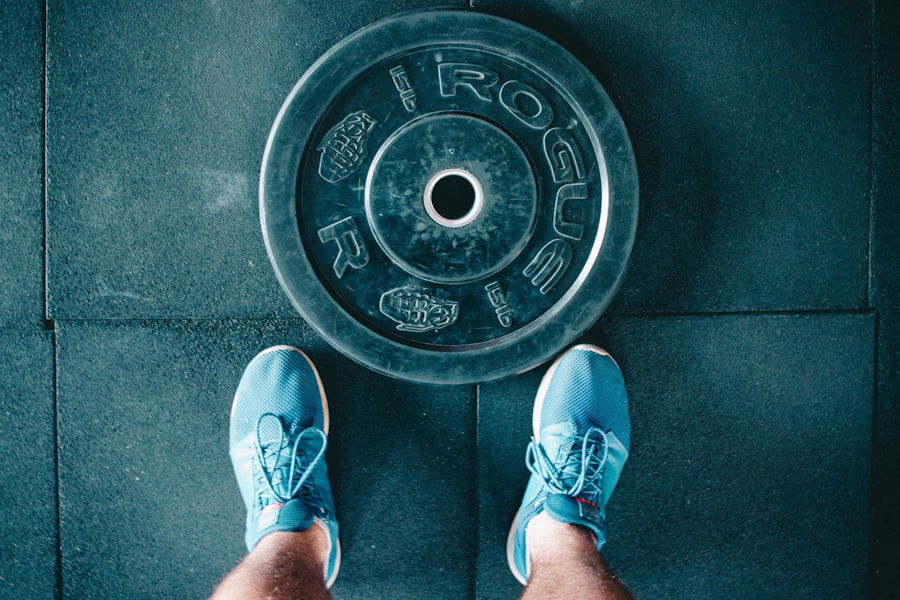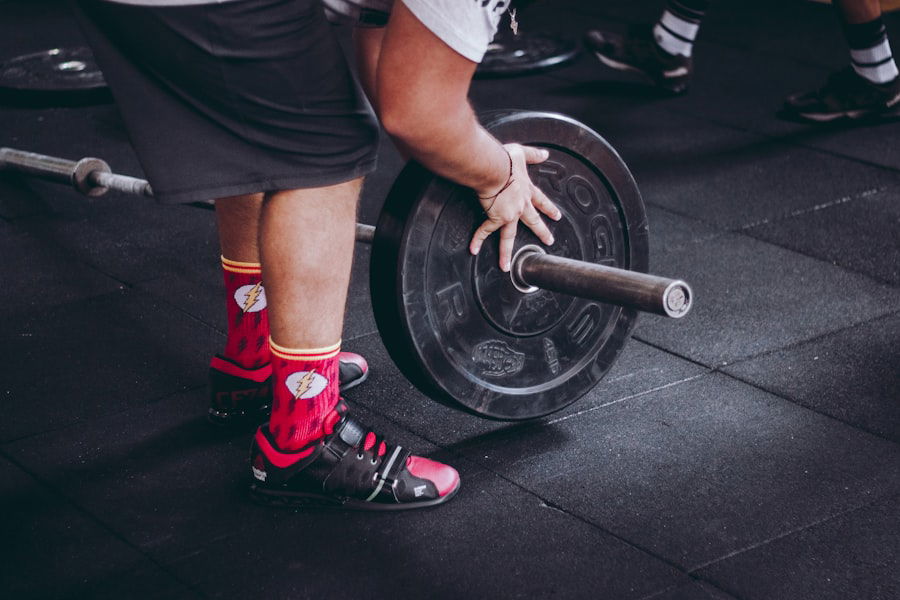Paralympian training is a specialized form of athletic preparation designed for athletes with physical disabilities. This training is tailored to accommodate the unique needs and abilities of each individual athlete, considering their specific impairments and physical limitations. The primary goal is to optimize the athlete’s physical and mental capabilities, enabling them to compete at the highest level in their respective sports.
These training programs are customized for each athlete, taking into account their impairment, level of function, and personal goals. A multidisciplinary approach is often employed, involving coaches, physiotherapists, strength and conditioning specialists, and sports psychologists. The training regimen typically includes a combination of strength and conditioning exercises, cardiovascular training, skill-specific drills, and mental preparation techniques.
Paralympian training extends beyond physical preparation, focusing also on developing mental resilience and emotional strength. This holistic approach helps athletes overcome the unique challenges associated with their disabilities. The ultimate aim of Paralympian training is to maximize the potential of athletes with physical impairments and support their success in their chosen sports.
Key Takeaways
- Paralympian training requires adaptive methods to accommodate different abilities and needs
- Strength and conditioning are crucial for Paralympic athletes to excel in their sports
- Endurance and cardiovascular training play a key role in enhancing performance for Paralympians
- Skill-specific training is essential for Paralympic athletes to excel in their individual sports
- Mental and emotional preparation, as well as recovery and injury prevention, are vital for Paralympians to succeed in competition
The Importance of Adaptive Training Methods
Adaptive training methods are crucial for Paralympian athletes as they allow individuals with physical disabilities to train effectively and safely. These methods involve modifying traditional training techniques to accommodate the specific needs and abilities of each athlete, taking into account their impairment and level of function. Adaptive training methods may involve the use of specialized equipment, modified exercises, and personalized training programs tailored to the unique requirements of each athlete.
By adapting training methods to suit the individual needs of Paralympian athletes, coaches and trainers can help them maximize their potential and achieve success in their chosen sports. Adaptive training methods also play a key role in injury prevention and rehabilitation for Paralympian athletes. By carefully adapting training techniques to accommodate an athlete’s impairment, coaches and trainers can help reduce the risk of injury and ensure that athletes can train safely and effectively.
Additionally, adaptive training methods can be instrumental in helping athletes recover from injuries and regain their strength and mobility. By tailoring training programs to suit the specific needs of each athlete, coaches and trainers can help facilitate the rehabilitation process and support athletes in returning to peak performance. Overall, adaptive training methods are essential for Paralympian athletes as they enable individuals with physical disabilities to train effectively, prevent injuries, and reach their full potential in their chosen sports.
Strength and Conditioning for Paralympic Athletes

Strength and conditioning are fundamental components of Paralympian training programs, helping athletes develop the physical capabilities required to excel in their respective sports. Strength training focuses on building muscle strength, power, and endurance, while conditioning aims to improve cardiovascular fitness, agility, and overall physical performance. For Paralympian athletes, strength and conditioning programs are adapted to accommodate their specific impairments and physical limitations, with a focus on developing functional strength and mobility.
Strength and conditioning programs for Paralympian athletes may involve a combination of resistance training, bodyweight exercises, and functional movements tailored to the individual needs of each athlete. These programs are designed to improve muscle strength, enhance joint stability, and optimize overall physical performance. Additionally, cardiovascular conditioning is an essential component of Paralympian training, helping athletes improve their endurance, agility, and cardiovascular fitness.
By incorporating strength and conditioning into their training regimen, Paralympian athletes can enhance their physical capabilities, reduce the risk of injury, and improve their overall performance in competition. In addition to physical benefits, strength and conditioning programs also play a crucial role in enhancing the mental resilience of Paralympian athletes. By overcoming physical challenges and pushing their limits in training, athletes can develop mental toughness, determination, and confidence in their abilities.
Overall, strength and conditioning are integral components of Paralympian training programs, helping athletes develop the physical and mental capabilities required to excel in their chosen sports.
Endurance and Cardiovascular Training
Endurance and cardiovascular training are essential components of Paralympian training programs, helping athletes improve their stamina, cardiovascular fitness, and overall physical performance. Endurance training focuses on building the athlete’s ability to sustain prolonged physical activity, while cardiovascular training aims to improve heart health, lung capacity, and overall aerobic fitness. For Paralympian athletes, endurance and cardiovascular training are adapted to accommodate their specific impairments and physical limitations, with a focus on developing functional endurance and cardiovascular fitness.
Endurance training for Paralympian athletes may involve a combination of aerobic exercises, interval training, and sport-specific drills tailored to the individual needs of each athlete. These programs are designed to improve the athlete’s ability to sustain prolonged physical activity, enhance their stamina, and optimize their overall endurance performance. Additionally, cardiovascular training plays a crucial role in improving heart health, lung capacity, and overall aerobic fitness for Paralympian athletes.
By incorporating endurance and cardiovascular training into their regimen, athletes can improve their overall physical performance, reduce fatigue during competition, and enhance their ability to perform at their best. In addition to physical benefits, endurance and cardiovascular training also play a key role in enhancing the mental resilience of Paralympian athletes. By pushing their limits in endurance training and overcoming physical challenges, athletes can develop mental toughness, determination, and confidence in their abilities.
Overall, endurance and cardiovascular training are essential components of Paralympian training programs, helping athletes improve their stamina, cardiovascular fitness, and overall physical performance.
Skill-Specific Training for Individual Sports
Skill-specific training is a crucial component of Paralympian preparation as it focuses on developing the technical abilities required for success in individual sports. Each sport has its own set of technical skills and requirements, and skill-specific training aims to help athletes master these skills while accommodating their specific impairments or limitations. Whether it’s wheelchair basketball, para swimming, or adaptive skiing, skill-specific training is tailored to the unique demands of each sport and the individual needs of each athlete.
Skill-specific training for Paralympian athletes may involve drills, practice sessions, and technique-focused exercises designed to improve the athlete’s proficiency in their chosen sport. Coaches and trainers work closely with athletes to identify areas for improvement and develop personalized training programs that target specific technical skills. By focusing on skill-specific training, Paralympian athletes can enhance their technical abilities, optimize their performance in competition, and achieve success in their respective sports.
In addition to technical proficiency, skill-specific training also plays a crucial role in enhancing the mental resilience of Paralympian athletes. By mastering technical skills and overcoming challenges in skill-specific training, athletes can develop confidence in their abilities and mental toughness required for competition. Overall, skill-specific training is an essential component of Paralympian preparation as it helps athletes develop the technical abilities required for success in individual sports.
Mental and Emotional Preparation for Competition

Mental and emotional preparation is a critical aspect of Paralympian training as it helps athletes develop the psychological resilience required for competition. Athletes with physical disabilities often face unique challenges that require mental strength, determination, and emotional resilience to overcome. Mental preparation techniques such as visualization, goal setting, positive self-talk, and stress management are essential for helping Paralympian athletes develop the mental fortitude required for success in competition.
Mental preparation for Paralympian athletes involves working closely with sports psychologists or mental performance coaches to develop personalized strategies for enhancing mental resilience. These strategies may include visualization exercises to mentally rehearse competition scenarios, goal setting techniques to focus on specific performance targets, positive self-talk to build confidence and self-belief, as well as stress management techniques to cope with pressure during competition. By incorporating mental preparation into their training regimen, Paralympian athletes can develop the psychological resilience required to overcome challenges and perform at their best in competition.
Emotional preparation is also an important aspect of Paralympian training as it helps athletes manage the emotional demands of competition. Athletes may face feelings of anxiety, frustration, or self-doubt as they navigate the challenges of competitive sports. Emotional preparation techniques such as mindfulness practices, emotional regulation strategies, and coping mechanisms are essential for helping athletes manage their emotions effectively during competition.
By developing emotional resilience through targeted emotional preparation techniques, Paralympian athletes can navigate the emotional demands of competition more effectively and perform at their best when it matters most.
Recovery and Injury Prevention for Paralympians
Recovery and injury prevention are crucial aspects of Paralympian training programs as they help athletes maintain optimal physical condition while minimizing the risk of injury. Recovery techniques such as restorative exercises, mobility work, stretching routines, and recovery modalities are essential for helping athletes recover from intense training sessions while reducing muscle soreness and fatigue. Additionally, injury prevention strategies such as proper warm-up routines, movement assessments, biomechanical analysis, and targeted strengthening exercises are essential for minimizing the risk of injury during training and competition.
Recovery techniques play a key role in helping Paralympian athletes manage the physical demands of intense training regimens while promoting optimal recovery between sessions. By incorporating recovery techniques into their training programs, athletes can reduce muscle soreness, fatigue, and the risk of overtraining while maintaining optimal physical condition for competition. Additionally, injury prevention strategies are essential for helping athletes minimize the risk of injury during training or competition by identifying potential risk factors or imbalances that could lead to injury.
In conclusion, recovery and injury prevention are essential components of Paralympian training programs as they help athletes maintain optimal physical condition while minimizing the risk of injury. By incorporating recovery techniques such as restorative exercises and recovery modalities into their regimen while implementing injury prevention strategies such as proper warm-up routines and targeted strengthening exercises; Paralympian athletes can optimize their physical condition while reducing the risk of injury during training or competition.
If you’re interested in learning more about the impact of policies on voter behavior, check out this article on Biden’s Stance on Immigration: Key Policies and Voter Impacts. Understanding the influence of political decisions on the electorate can provide valuable insights into the broader societal context in which Paralympians train and compete.
FAQs
What is the training regimen for Paralympians?
Paralympians follow a rigorous training regimen that includes strength training, cardiovascular exercises, flexibility training, and sport-specific skill development. They work with coaches and trainers to create personalized workout plans that cater to their specific disabilities and athletic goals.
How do Paralympians adapt their workouts to their disabilities?
Paralympians work with specialized trainers and adaptive equipment to modify their workouts according to their disabilities. They may use prosthetics, wheelchairs, or other assistive devices to perform exercises and drills that cater to their specific needs.
What are the key components of a Paralympian’s training program?
The key components of a Paralympian’s training program include strength and conditioning, agility and speed training, balance and coordination exercises, as well as sport-specific skill development. They also focus on injury prevention and recovery to maintain peak performance.
How do Paralympians maintain mental and emotional strength during training?
Paralympians often work with sports psychologists and mental performance coaches to develop mental toughness, resilience, and focus. They also engage in mindfulness practices, visualization techniques, and goal-setting to maintain a positive mindset during training and competition.
What role does nutrition play in a Paralympian’s training regimen?
Nutrition plays a crucial role in a Paralympian’s training regimen as it fuels their workouts, aids in recovery, and supports overall performance. Paralympians work with nutritionists to create balanced meal plans that cater to their specific dietary needs and training demands.
